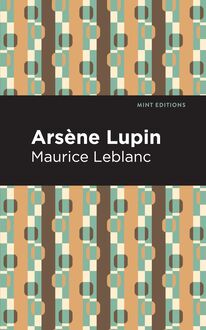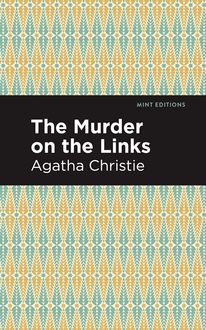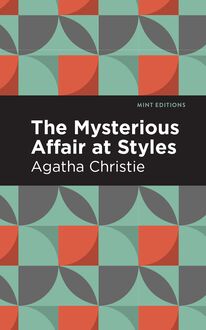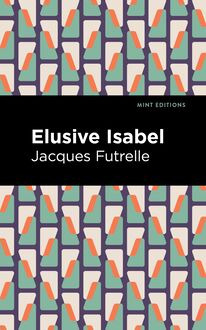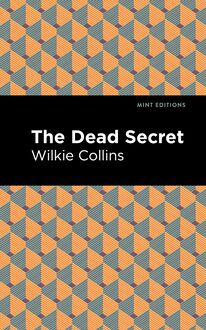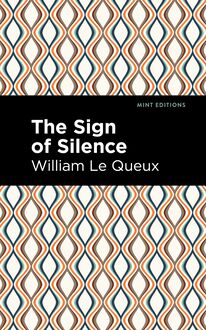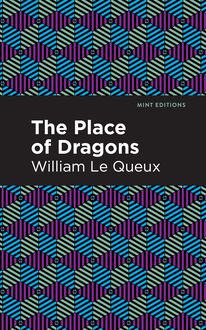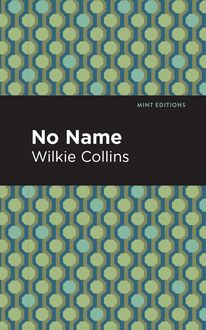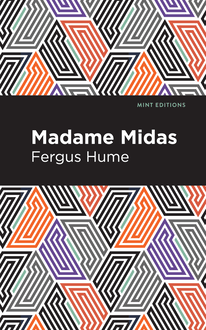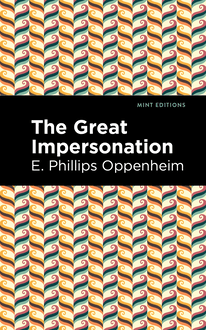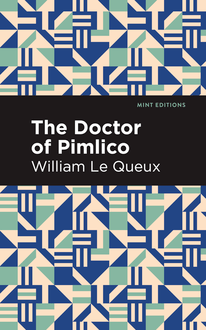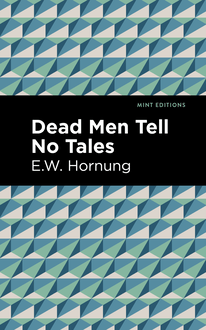-
 Univers
Univers
-
 Ebooks
Ebooks
-
 Livres audio
Livres audio
-
 Presse
Presse
-
 Podcasts
Podcasts
-
 BD
BD
-
 Documents
Documents
-
- Cours
- Révisions
- Ressources pédagogiques
- Sciences de l’éducation
- Manuels scolaires
- Langues
- Travaux de classe
- Annales de BEP
- Etudes supérieures
- Maternelle et primaire
- Fiches de lecture
- Orientation scolaire
- Méthodologie
- Corrigés de devoir
- Annales d’examens et concours
- Annales du bac
- Annales du brevet
- Rapports de stage
La lecture à portée de main
Vous pourrez modifier la taille du texte de cet ouvrage
Découvre YouScribe en t'inscrivant gratuitement
Je m'inscrisDécouvre YouScribe en t'inscrivant gratuitement
Je m'inscrisEn savoir plus
Vous pourrez modifier la taille du texte de cet ouvrage
En savoir plus

Description
”Holmes and Watson accompany a woman on a quest which leads them through the dark heart of London to a one-legged man, a mysterious and terrifying creature, and an incredible tale of greed and revenge.”-School Library Journal
“The immense talent, passion and literary brilliance that Conan Doyle brought to his work gives him a unique place in English letters.”-Stephen Fry
”Holmes has a timeless talent, passion and literary brilliance that puts him heads, shoulders and deerstalker above all other detectives.”- Alexander McCall Smith
Arthur Conan Doyle’s The Sign of Four is the second novel in the Sherlock Holmes series, following the enormously successful novel A Study In Scarlet. With the mysterious disappearance of a British Indian army officer, a one-legged hooligan, a stolen treasure, and a nefarious pact between four con-men, this novel of revenge and love is an exquisite classic of crime fiction.
In the infamous opening of the novel, Dr. Watson finds Sherlock Holmes in his Baker Street home, bored and in the process of taking cocaine. Dr. Watson finally confronts his friend, and Holmes retorts that he does not do well in moments of tedium; luckily the doldrums are evaporated with the arrival of a beautiful woman at the door of Baker Street; she is Mary Morstan, a character that Sherlock Holmes fans are very acquainted with as she eventually becomes the wife of Dr. Watson. Mary asked for the help in a very strange case; years ago her father disappeared from his post in India as an army officer, a few years later she began receiving an exquisite pearl in the mail on an annual basis for the past six years. Mary revealed a letter to Holmes from the sender of the pearls, asking to meet in person for clues to her father’s disappearance and the motive behind the pearls. When they meet Thaddeus Sholto, Holmes and Watson are snarled into a web of a dangerous hunt and a morass of intrigue including a secret Indian treasure, four ex-cons, a one-legged gangster. The Sign of the Four, one of the most popular of the Sherlock Holmes crime novels, has been adapted into numerous film and TV productions.
With an eye-catching new cover, and professionally typeset manuscript, this edition of The Sign of the Four is both modern and readable.
Sujets
Informations
| Publié par | Mint Editions |
| Date de parution | 01 décembre 2020 |
| Nombre de lectures | 0 |
| EAN13 | 9781513272368 |
| Langue | English |
| Poids de l'ouvrage | 1 Mo |
Informations légales : prix de location à la page 0,0350€. Cette information est donnée uniquement à titre indicatif conformément à la législation en vigueur.
Extrait
The Sign of the Four
Sir Arthur Conan Doyle
The Sign of the Four was first published in 1890.
This edition published by Mint Editions 2020.
ISBN 9781513267364 | E-ISBN 9781513272368
Published by Mint Editions®
minteditionbooks.com
Publishing Director: Jennifer Newens
Design & Production: Rachel Lopez Metzger
Typesetting: Westchester Publishing Services
C ONTENTS I. T HE S CIENCE OF D EDUCTION II. T HE S TATEMENT OF THE C ASE III. I N Q UEST OF A S OLUTION IV. T HE S TORY OF THE B ALD- H EADED M AN V. T HE T RAGEDY OF P ONDICHERRY L ODGE VI. S HERLOCK H OLMES G IVES A D EMONSTRATION VII. T HE E PISODE OF THE B ARREL VIII. T HE B AKER S TREET I RREGULARS IX. A B REAK IN THE C HAIN X. T HE E ND OF THE I SLANDER XI. T HE G REAT A GRA T REASURE XII. T HE S TRANGE S TORY OF J ONATHAN S MALL
I
T HE S CIENCE OF D EDUCTION
S herlock Holmes took his bottle from the corner of the mantel-piece and his hypodermic syringe from its neat morocco case. With his long, white, nervous fingers he adjusted the delicate needle, and rolled back his left shirt-cuff. For some little time his eyes rested thoughtfully upon the sinewy forearm and wrist all dotted and scarred with innumerable puncture-marks. Finally he thrust the sharp point home, pressed down the tiny piston, and sank back into the velvet-lined arm-chair with a long sigh of satisfaction.
Three times a day for many months I had witnessed this performance, but custom had not reconciled my mind to it. On the contrary, from day to day I had become more irritable at the sight, and my conscience swelled nightly within me at the thought that I had lacked the courage to protest. Again and again I had registered a vow that I should deliver my soul upon the subject, but there was that in the cool, nonchalant air of my companion which made him the last man with whom one would care to take anything approaching to a liberty. His great powers, his masterly manner, and the experience which I had had of his many extraordinary qualities, all made me diffident and backward in crossing him.
Yet upon that afternoon, whether it was the Beaune which I had taken with my lunch, or the additional exasperation produced by the extreme deliberation of his manner, I suddenly felt that I could hold out no longer.
“Which is it to-day?” I asked,—“morphine or cocaine?”
He raised his eyes languidly from the old black-letter volume which he had opened. “It is cocaine,” he said,—“a seven-per-cent. solution. Would you care to try it?”
“No, indeed,” I answered, brusquely. “My constitution has not got over the Afghan campaign yet. I cannot afford to throw any extra strain upon it.”
He smiled at my vehemence. “Perhaps you are right, Watson,” he said. “I suppose that its influence is physically a bad one. I find it, however, so transcendently stimulating and clarifying to the mind that its secondary action is a matter of small moment.”
“But consider!” I said, earnestly. “Count the cost! Your brain may, as you say, be roused and excited, but it is a pathological and morbid process, which involves increased tissue-change and may at last leave a permanent weakness. You know, too, what a black reaction comes upon you. Surely the game is hardly worth the candle. Why should you, for a mere passing pleasure, risk the loss of those great powers with which you have been endowed? Remember that I speak not only as one comrade to another, but as a medical man to one for whose constitution he is to some extent answerable.”
He did not seem offended. On the contrary, he put his finger-tips together and leaned his elbows on the arms of his chair, like one who has a relish for conversation.
“My mind,” he said, “rebels at stagnation. Give me problems, give me work, give me the most abstruse cryptogram or the most intricate analysis, and I am in my own proper atmosphere. I can dispense then with artificial stimulants. But I abhor the dull routine of existence. I crave for mental exaltation. That is why I have chosen my own particular profession,—or rather created it, for I am the only one in the world.”
“The only unofficial detective?” I said, raising my eyebrows.
“The only unofficial consulting detective,” he answered. “I am the last and highest court of appeal in detection. When Gregson or Lestrade or Athelney Jones are out of their depths—which, by the way, is their normal state—the matter is laid before me. I examine the data, as an expert, and pronounce a specialist’s opinion. I claim no credit in such cases. My name figures in no newspaper. The work itself, the pleasure of finding a field for my peculiar powers, is my highest reward. But you have yourself had some experience of my methods of work in the Jefferson Hope case.”
“Yes, indeed,” said I, cordially. “I was never so struck by anything in my life. I even embodied it in a small brochure with the somewhat fantastic title of ‘A Study in Scarlet.’ ”
He shook his head sadly. “I glanced over it,” said he. “Honestly, I cannot congratulate you upon it. Detection is, or ought to be, an exact science, and should be treated in the same cold and unemotional manner. You have attempted to tinge it with romanticism, which produces much the same effect as if you worked a love-story or an elopement into the fifth proposition of Euclid.”
“But the romance was there,” I remonstrated. “I could not tamper with the facts.”
“Some facts should be suppressed, or at least a just sense of proportion should be observed in treating them. The only point in the case which deserved mention was the curious analytical reasoning from effects to causes by which I succeeded in unraveling it.”
I was annoyed at this criticism of a work which had been specially designed to please him. I confess, too, that I was irritated by the egotism which seemed to demand that every line of my pamphlet should be devoted to his own special doings. More than once during the years that I had lived with him in Baker Street I had observed that a small vanity underlay my companion’s quiet and didactic manner. I made no remark, however, but sat nursing my wounded leg. I had a Jezail bullet through it some time before, and, though it did not prevent me from walking, it ached wearily at every change of the weather.
“My practice has extended recently to the Continent,” said Holmes, after a while, filling up his old brier-root pipe. “I was consulted last week by Fran ç ois Le Villard, who, as you probably know, has come rather to the front lately in the French detective service. He has all the Celtic power of quick intuition, but he is deficient in the wide range of exact knowledge which is essential to the higher developments of his art. The case was concerned with a will, and possessed some features of interest. I was able to refer him to two parallel cases, the one at Riga in 1857, and the other at St. Louis in 1871, which have suggested to him the true solution. Here is the letter which I had this morning acknowledging my assistance.” He tossed over, as he spoke, a crumpled sheet of foreign notepaper. I glanced my eyes down it, catching a profusion of notes of admiration, with stray “magnifiques,” “coup-de-ma î tres,” and “tours-de-force,” all testifying to the ardent admiration of the Frenchman.
“He speaks as a pupil to his master,” said I.
“Oh, he rates my assistance too highly,” said Sherlock Holmes, lightly. “He has considerable gifts himself. He possesses two out of the three qualities necessary for the ideal detective. He has the power of observation and that of deduction. He is only wanting in knowledge; and that may come in time. He is now translating my small works into French.”
“Your works?”
“Oh, didn’t you know?” he cried, laughing. “Yes, I have been guilty of several monographs. They are all upon technical subjects. Here, for example, is one ‘Upon the Distinction between the Ashes of the Various Tobaccoes.’ In it I enumerate a hundred and forty forms of cigar-, cigarette-, and pipe-tobacco, with coloured plates illustrating the difference in the ash. It is a point which is continually turning up in criminal trials, and which is sometimes of supreme importance as a clue. If you can say definitely, for example, that some murder has been done by a man who was smoking an Indian lunkah, it obviously narrows your field of search. To the trained eye there is as much difference between the black ash of a Trichinopoly and the white fluff of bird’s-eye as there is between a cabbage and a potato.”
“You have an extraordinary genius for minuti æ ,” I remarked.
“I appreciate their importance. Here is my monograph upon the tracing of footsteps, with some remarks upon the uses of plaster of Paris as a preserver of impresses. Here, too, is a curious little work upon the influence of a trade upon the form of the hand, with lithotypes of the hands of slaters, sailors, corkcutters, compositors, weavers, and diamond-polishers. That is a matter of great practical interest to the scientific detective,—especially in cases of unclaimed bodies, or in discovering the antecedents of criminals. But I weary you with my hobby.”
“Not at all,” I answered, earnestly. “It is of the greatest interest to me, especially since I have had the opportunity of observing your practical application of it. But you spoke just now of observation and deduction. Surely the one to some extent implies the other.”
“Why, hardly,” he answered, leaning back luxuriously in his arm-chair, and sending up thick blue wreaths from his pipe. “For example, observation shows me that you have been to the Wigmore Street Post-Office this morning, but deduction lets me know that when there you dispatched a telegram.”
“Right!” said I. “Right on both points! But I confess that I don’t see how you arrived at it. It was a sudden impulse upon my part, and I have mentioned it to no one.”
“It is simplicity itself,” he remarked, chuckling at my surprise,—“so absurdly simple that an explanation is superfluous; and yet it may serve
-
 Univers
Univers
-
 Ebooks
Ebooks
-
 Livres audio
Livres audio
-
 Presse
Presse
-
 Podcasts
Podcasts
-
 BD
BD
-
 Documents
Documents
-
Jeunesse
-
Littérature
-
Ressources professionnelles
-
Santé et bien-être
-
Savoirs
-
Education
-
Loisirs et hobbies
-
Art, musique et cinéma
-
Actualité et débat de société
-
Jeunesse
-
Littérature
-
Ressources professionnelles
-
Santé et bien-être
-
Savoirs
-
Education
-
Loisirs et hobbies
-
Art, musique et cinéma
-
Actualité et débat de société
-
Actualités
-
Lifestyle
-
Presse jeunesse
-
Presse professionnelle
-
Pratique
-
Presse sportive
-
Presse internationale
-
Culture & Médias
-
Action et Aventures
-
Science-fiction et Fantasy
-
Société
-
Jeunesse
-
Littérature
-
Ressources professionnelles
-
Santé et bien-être
-
Savoirs
-
Education
-
Loisirs et hobbies
-
Art, musique et cinéma
-
Actualité et débat de société
- Cours
- Révisions
- Ressources pédagogiques
- Sciences de l’éducation
- Manuels scolaires
- Langues
- Travaux de classe
- Annales de BEP
- Etudes supérieures
- Maternelle et primaire
- Fiches de lecture
- Orientation scolaire
- Méthodologie
- Corrigés de devoir
- Annales d’examens et concours
- Annales du bac
- Annales du brevet
- Rapports de stage
